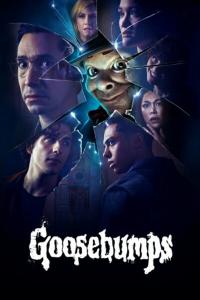Torrent details for "Lowrie T. Digital Games and Mathematics Learning. Potential,...and Pitfalls 2017 [andryold1]" Log in to bookmark
Controls:
External index by SiteBot Verified
Category:
Language:
 English
EnglishTotal Size:
8.69 MB
Info Hash:
daa34d3474ab97043a2f8ac7f6b9d068817b4b1f
Added By:
Added:
07-03-2023 20:59
Views:
142
Health:

Seeds:
0
Leechers:
0
Completed:
199
Textbook in PDF formatExternally indexed torrent If you are the original uploader, contact staff to have it moved to your account
Digital games offer enormous potential for learning and engagement in mathematics ideas and processes. This volume offers multidisciplinary perspectives—of educators, cognitive scientists, psychologists and sociologists—on how digital games influence the social activities and mathematical ideas of learners/gamers. Contributing authors identify opportunities for broadening current understandings of how mathematical ideas are fostered (and embedded) within digital game environments. In particular, the volume advocates for new and different ways of thinking about mathematics in our digital age—proposing that these mathematical ideas and numeracy practices are distinct from new literacies or multiliteracies. The authors acknowledge that the promise of digital games has not always been realised/fulfilled. There is emerging, and considerable, evidence to suggest that traditional discipline boundaries restrict opportunities for mathematical learning. Throughout the book, what constitutes mathematics learnings and pedagogy is contested. Multidisciplinary viewpoints are used to describe and understand the potential of digital games for learning mathematics and identify current tensions within the field.
Mathematics learning is defined as being about problem solving engagement in mathematical ideas and processes and social engagement. The artefact, which is the game, shapes the ways in which the gamers engage with the social activity of gaming. In parallel, the book (as a te
xtual artefact) will be supported by Springer’s online platform—allowing for video and digital communication (including links to relevant websites) to be used as supplementary material and establish a dynamic communication space.
Digital Games and Learning: What’s New Is Already Old? Tom Lowrie and Robyn Jorgensen (Zevenbergen)
Mathematics and Non-School Gameplay. Antri Avraamidou, John Monaghan and Aisha Walker
Integration of Digital Games in Learning and E-Learning Environments: Connecting Experiences and Context. Begoña Gros
The Construction of Electronic Games as an Environment for Mathematics Education. Rodrigo Dalla Vecchia, Marcus V. Maltempi and Marcelo C. Borba
Digital Games, Mathematics and Visuospatial Reasoning. Tom Lowrie
Digital Games and Equity: Implications for Issues of Social Class and Rurality. Robyn Jorgensen (Zevenbergen)
Multimodal Literacy, Digital Games and Curriculum. Catherine Beavis
Apples and Coconuts: Young Children ‘Kinecting’ with Mathematics and Sesame Street. Meagan Rothschild and Caroline C. Williams
SAPS and Digital Games: Improving Mathematics Transfer and Attitudes in Schools. Richard N. Van Eck
Mathematics and Educational Psychology: Construction of Learning Environments. Cesare Fregola
Serious Games and Gaming. Terry Bossomaier
Apps: Appropriate, Applicable, and Appealing? Nigel Calder
“An App! An App! My Kingdom for An App”: An 18-Month Quest to Determine Whether Apps Support Mathematical Knowledge Building.
Kevin Larkin
Digital Games and Mathematics Learning: The State of Play. Tracy Logan and Kim Woodland











































